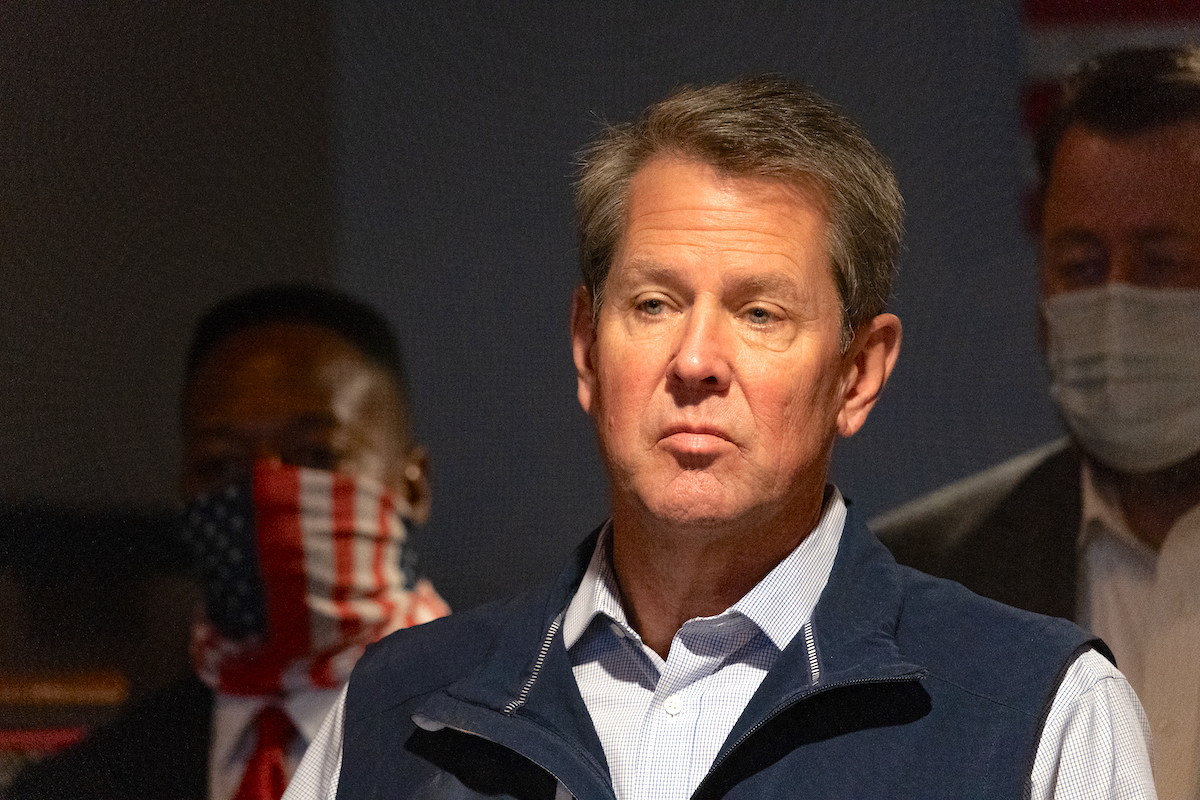In Leaked Audio, Georgia Gov. Brian Kemp Says He’d Support Attack on IVF

During a campaign stop in the small town of Blakely, Georgia, Governor Brian Kemp told supporters that he would support hypothetical legislation imposing a “statewide ban on the destruction of embryos.”
Kemp signed into law Georgia’s six-week abortion ban, which went into effect this summer. But we always knew that the anti-abortion movement would not stop there. The person in the audio—which was obtained by the Atlanta Journal-Constitution—asks Kemp about a possible ban on destroying embryos, calling it “an idea you might never have heard.” In reality, things like contraception and IVF (in vitro fertilization) have always been high up on this movement’s list of targets.
“Would that pass the Legislature? Is that possible?” asks the supporter—or, according to the AJC, a person posing as a supporter. Kemp points out that they “barely got the heartbeat bill passed” but when asked, “Do you like the idea?” Kemp replies, “Yeah.”
Kemp’s spokesperson denied that the governor would support such a bill, telling the AJC: “The governor has been abundantly clear that his priorities for a second term are to build on Georgia’s record economic success, invest in and support our schools, and keep our communities safe.”
Except the question isn’t whether this is a priority. The question is whether Kemp thinks it’s appropriate for the government to be inserting itself into people’s fertility and family planning decisions to this extreme degree and his answer, according to that audio recording, was yes, he does think that’s appropriate, even desirable.
Jezebel’s Susan Rinkunas breaks down the myriad ways in which this sort of legislation could affect IVF patients, prospective patients, and the entire fertility industry:
What could it mean practically if laws banning embryo destruction were to pass? People would have to pay to store their unused embryos forever, pay to move them to another state, or they might feel pressured to donate the embryos to anti-abortion organizations instead of footing that bill. That is, if IVF even remains available in their state.
Depending on how carefully any embryo-destruction laws are written, fertility clinics could get in trouble if storage tanks have power issues and embryos get destroyed—this is rare but it’s happened. Elizabeth Nash, the principal policy analyst for state issues at Guttmacher Institute, told Jezebel in June that nearly 40 states have fetal homicide laws, originally intended to help address homicide during pregnancy, but the laws have since been co-opted to criminalize pregnant people. Anti-abortion lawmakers could technically use these same laws, and other “life begins at conception” language, to target fertility clinics.
Fertility clinics might choose to limit the number of embryos created per cycle to try to avoid having any “extra,” but that could mean more expensive and invasive cycles until someone successfully gets pregnant. If the clinics choose not to offer IVF because of restrictions on embryos, it could threaten their business models, which could lead to less access to other fertility treatments like artificial insemination, as Jezebel’s Kylie Cheung reported.
Georgia’s abortion ban already includes a “fetal personhood” provision, which establishes full human rights (and tax breaks) for fetuses. While the provision does not appear to apply to embryos, that’s absolutely the direction things are creeping. We’ve already seen this issue come up in court cases, as everyone from the Christian right to scummy ex-boyfriends has made it clear they have personal and institutional investment in getting the government to exert power over family planning.
(image: Megan Varner/Getty Images)
Have a tip we should know? tips@themarysue.com